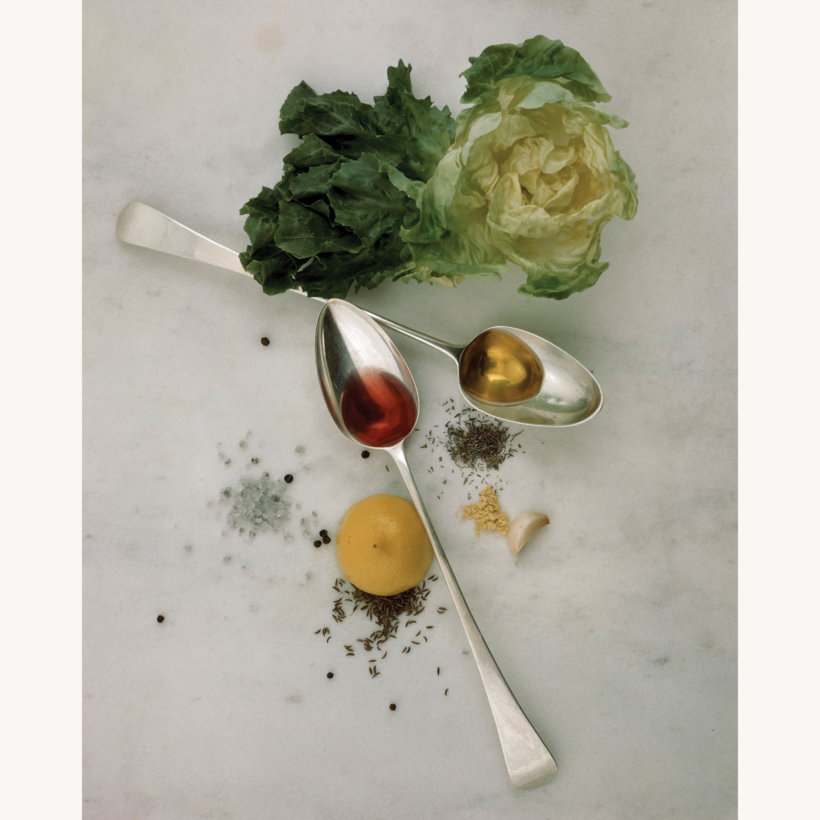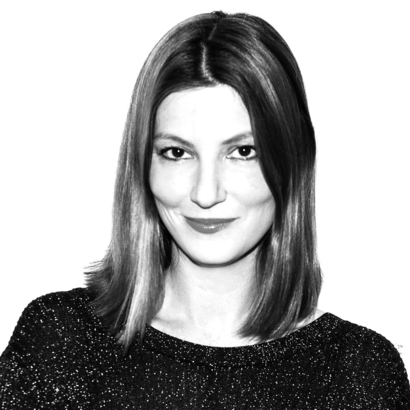It’s been many years since I was truly spoon-fed (1996, wisdom-teeth surgery, my mom, soft serve). But then, on the cusp of middle age, I went to Buchinger Wilhelmi in Uberlingen, Germany, and felt like a baby again.
Buchinger is neither a spa nor a resort but a clinic, and unapologetically so. It was opened in 1953 by Dr. Otto Buchinger, the first physician to document, all the way back in 1920, the beneficial effects of fasting, and Europeans have been slouching to the shores of Lake Constance to get away from solid food ever since. Some might describe 10 days of vegetable broth, herbal tea, and mineral water as punishing or absurd, but masochists and fashion people tend to eat up that sort of thing. Or at least the sample-size prospects that accompany it.
For a woman with two young children, a full-time job, and an English cocker spaniel that requires an awful lot of attention, a 10-day fasting retreat is laughable. But I did want to lose the five pounds that have been plaguing me since, oh, 1996, and perhaps also figure out the magic formula of life extension. So I went to Buchinger on the entry-level, three-night “relax” plan—no fasting, no enema, just three squares a day totaling either 800 or 1,200 calories, depending on one’s pain tolerance.
Some might describe 10 days of vegetable broth, herbal tea, and mineral water as punishing or absurd, but masochists and fashion people tend to eat up that sort of thing.
Welcome to one of the least sexy places in the universe. The general vibe is rehab hospital. An employee will take your bag to your room, but largely, it seems, because they fear you’ll break a hip. The place is spotless, odorless, white, starched, and silent; using your phone is almost as frowned upon as sneaking to town for a cortado. (I have experience with both.)
In the waiting area, there’s not a single copy of Bunte or even Der Spiegel, but those used to reading German medical literature will find lots to love. The weekend’s activities: guided forest walks, meditation classes, yoga, stretching, a workshop on the ketogenic diet, a harp concert. Apparently that last one is supposed to take your mind off the fact that you’re starving.
Each new arrival spends 45 minutes with a physician, who conducts a full physical and then fills the patient’s dance card. It could be blood work, liver elastography, spiroergometry, an echocardiogram, or an appointment with the psychiatrist, nutritionist, or massage therapist. Buchinger swears, “We empower people to live a healthy and fulfilling life!” And the entire staff takes this job very seriously, admirably so.
My doctor could have been a distant cousin of Helen Mirren; she looked great in scrubs. She wasn’t worried about my blood pressure; she thought my waist circumference looked just fine. In fact, she didn’t seem terribly concerned about anything at all. (I probably wasn’t the only wellness-obsessed hypochondriac she had seen that day, or even that hour.) After recommending more vitamin D, she sent me merrily along to “therapy planning,” where I scheduled lymphatic drainage, osteopathy, and a bike ride in 20-degree weather that nearly ended in frostbitten fingers.
My fellow patients tended to be either semi-retired or marginally employed; with room rates starting at $345 a night, it’s a much more economically diverse group than the socialites at Canyon Ranch or the G-Wagon set at nearby Lanserhof. They come from all over Europe and all walks of life. During a stroll in the woods, led by a gentleman with a long white beard who stopped midway to serve us a thimble of apple tea, I passed the time with an N.H.S. doctor from the south of England, an investment banker from Oslo, and an accountant from northern Norway. It was kind of hard to make small talk when all we wanted to do was forage for berries.
For the first time since college, I would be sleeping in a twin-size bed, but at least this one had views of Lake Constance instead of the Lake House dumpster. (Those who stay for a few weeks may want to bring a Nirvana poster and some snacks.) The rooms are cozy but basic and hospital white; there’s a pleather lounge chair but no mini-bar or hair conditioner.
What they do have are panic buttons, plural. Including an emergency cord in the shower, which I jostled while folding myself into the bathtub. A nurse barged into my room 30 seconds later, threatening to assist. I finally got her out of there, but not without a tense exchange. She found it incomprehensible that I had pulled the thing accidentally, because at Buchinger accidents are also verboten.
After a remarkably sound night of sleep, it was a Saturday morning, and in an act of God, I had no children, no responsibilities, and absolutely nothing to do except wait for lunch. Buchinger’s restaurant is its most Instagrammable element; someone at the top clearly went off-script with the midcentury design, like a Viennese coffee shop without the schlag. But despite the tasteful green velvet banquettes and earthenware pottery, it felt deliberately dull, maybe so the act of eating wouldn’t seem more appealing than necessary.
All around me, people were staring at their six-ounce portions of lentil soup with a Noma-level reverence. One woman’s sallow complexion was illuminated by a single candle, indicating not that she was celebrating a birthday but breaking her fast.
Is a restaurant really a restaurant if it never takes an order? Soup, two baked falafel balls atop steamed broccoli, and dessert—could it be?—of one square centimeter of apple cake with a dot of blueberry coulis would never be my choice, but they were tasty and filling. I immediately craved the muesli from breakfast—delicious, like all of the food at Buchinger, but who craves muesli?—and began scrolling Amazon for a $300 grain mill. This would have been the moment for a medical intervention.
Instead, I eavesdropped. The lady in the Uggs who gained 80 pounds during the pandemic was absolutely furious that she had somehow weighed in half a pound heavier than the day before. The Englishwoman with the impressive blowout (where did she get that?) had been there for weeks. One woman who appeared to be in her 60s began quietly weeping to the nutritionist, who appeared out of nowhere.
The South Beach Diet, the keto diet, the plant-based diet, the paleo diet, the intuitive diet … the SoulCycle, the Flywheel, the Barry’s Bootcamp, the Peak Performance, the Kula, the Jivamukti, the Karen Lord Pilates, the Erika Bloom Pilates, the Heartcore Pilates … why was I spending so much of my life trying to live forever? Why did I think five pounds stood between me and happiness? If I drink chicory instead of coffee and finally learn to choke down low-sugar fermented foods, will I sleep through the night and like the way I look in leggings? Will I ever feel satisfied?
Why was I spending so much of my life trying to live forever?
I spent my free time paddling listlessly in the heated outdoor pool before returning to cabbage juice and a small plate of seeds along with a very long and nonsensical handwritten note about how to most beneficially consume them. “You should every day have cabbage juice for 10 a.m. seats [did she mean seeds?] that you could go for bowel movement in the bathroom.” (I shuddered at the notion that another patient went for one elsewhere.)
I drank the cabbage gunk and called my kids and watched The Fablemans and felt like I was waiting to die. I wanted stimulation, but not enough to hit the harp concert. And so it went, day after day, sip after tiny sip, until it was time to leave. I had just finished my last tango with the treadmill when my phone rang: “Can we help you with your luggage?” This was a not-so-subtle message that it was time to go. My nurse barged in as I packed my suitcase.
“Ashley!” she chided, wagging a finger. “The cleaners have been waiting for you! I told you this morning that my new patient is arriving!” I hadn’t realized that checkout was an hour ago.
She went into the bathroom and started shoving my serums into a plastic bag, the same way that I stuff my kids’ backpacks when they’re late for school. “I’ve got it,” I insisted, my embarrassment verging on anger. “I’m almost done.” “But the cleaners are waiting!” she trilled.
And then, a small child again, I sat down on the bed and started crying. The nurse squatted down to my eye level, like a pre-school teacher. “You’re not O.K.,” she declared. And she was right. I had officially departed the planet.
I left Buchinger four pounds lighter, and four times more determined to plan my next restorative holiday to Baiersbronn, a small village in the Black Forest with 16 Michelin-starred restaurants. On my way out of the clinic, I passed a group of Buchinger employees, waiting for the bus and smoking.
Ashley Baker is a Deputy Editor for Air Mail and a co-host of the Morning Meeting podcast




